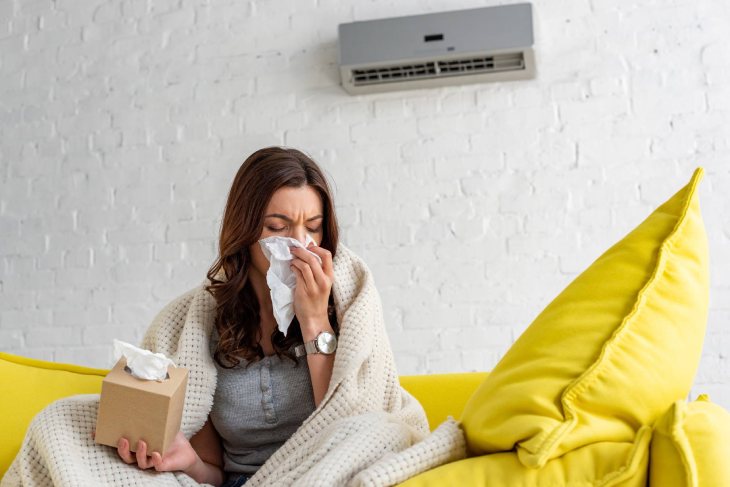The hot weather in recent days in Greece has “showed its grin”: the thermometer has risen to extremely high levels, and forest fires with smoke and particulate pollutants are forcing us to stay at home.
Air conditioners today occupy the first place in the life of a modern person, so it is useful to know what they protect us from and what are the risks. Air conditioner specialists note that the device (household appliances):
1. Affects indoor air
If you work in an air-conditioned building, poor ventilation can increase your risk of getting Legionnaires’ disease. Symptoms are headache, dry cough, dizziness and nausea, trouble concentrating, fatigue, and sensitivity to smells.
https://rua.gr/wom/healt/56307-bolezn-legionerov-ecdc-preduprezhdaet-ob-uvelichenii-sluchaev-zabolevaniya-v-evrope.html
Indoor air conditioning may also slightly increase the risk of contracting COVID-19, although the WHO says the risk is very low. You can reduce it even further by changing filters regularly, opening windows, and covering your mouth when you cough or sneeze.

2. Dehydrates
Air conditioners absorb moisture from a room to reduce humidity and cool the air. This can “pull the water out of your skin” and leave you feeling uncomfortably dry. In addition, the eyes suffer. Lack of humidity in air-conditioned rooms can cause itchy eyes, irritation and itching, and blurred vision.
3. Boosts Metabolism
Research shows that more time in the cold can help you lose weight. Your body can produce more usable brown fat as it encounters colder air. An air conditioner can keep you cool in the summer, but you’ll also need to keep your room temperature low in the winter to see any real benefit.
4. Helps to “wiggle your brain”
A 2018 Harvard study found that students who lived in unair-conditioned dorms during the hot summer months performed worse on tests than those with cool central ventilation.
5. Irritating to the respiratory tract
Studies show that people working in air-conditioned buildings have more respiratory problems (irritated nasal passages, difficulty breathing) than people working in naturally ventilated buildings.
6. Causes a headache
If you spend time indoors with dirty or poorly maintained HVAC systems, you’re more likely to get a headache or even a migraine. In one study, 8% of people working in unhealthy indoor air environments experienced headaches 1–3 days per month, and 8% experienced daily headaches.

7. Reduces resistance to heat
Scientists have coined the term “adaptive comfort model” to explain why, the longer we stay in air-conditioned rooms, the more difficult it is to endure high temperatures. Each person’s ideal temperature also depends on the temperature they have recently been exposed to. The longer you stay in air-conditioned rooms, the less comfortable you will feel in hot and humid conditions.
8. Pollutes the atmosphere
Older air conditioners may release CFCs. This coolant, which can damage the ozone layer, raising the Earth’s temperature. These refrigerants began to be gradually phased out in the 1990s, but they are still widely used throughout the world.
9. Increases allergies
Keeping your air conditioner clean can help reduce your allergies. But an HVAC system can quickly become a home for allergens. Make sure you perform the necessary maintenance on your air conditioner regularly so you don’t create additional allergy problems.
10. Helps you sleep better
Experts say that sleeping in a room with a temperature of +15-20 degrees is ideal for maximum relaxation. Air conditioning is a tool necessary to maintain the desired temperature in the sleeping area.

11. Saves lives in the heat
Air conditioning can have some negative effects, but there is no doubt that it can save lives when the temperature rises sharply. Once your body temperature rises above 38.8 degrees, you run the risk of “heat exhaustion” (this is the name of a non-life-threatening clinical syndrome, manifested by weakness, malaise, nausea, fainting, and other non-specific characteristics). And if the body continues to heat up, then a person can get heat stroke.







More Stories
Vaccine to combat antibiotic resistance
Oral health: increased risk of cancer
Avian influenza virus found in cow's milk